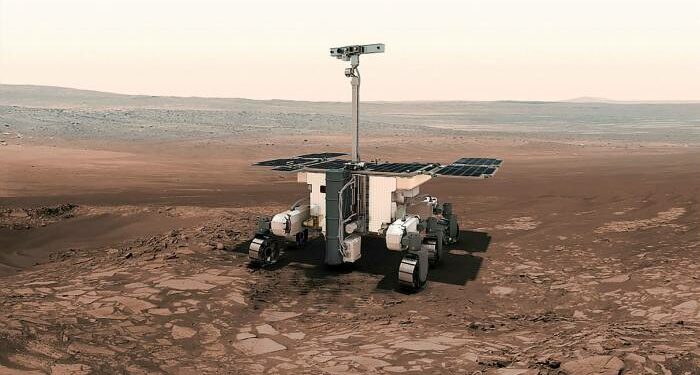Europe’s mission to land a life-seeking rover on Mars cannot launch as planned in September, following the suspension of collaboration with Russia, and is set to be delayed by at least four years, the European Space Agency said on Thursday.
The €1.68bn ExoMars project was to be launched on a Russian Proton rocket and then use a Russian landing mechanism to put its Rosalind Franklin rover on the Martian surface.
ESA’s ruling council has told director-general Josef Aschbacher to look for alternative options, but the mission will require extensive re-engineering following Russia’s exclusion.
The earliest launch date would be 2026 “and even that looks very challenging, technically and financially”, Aschbacher said. The next possibility, when Earth and Mars will be in the correct planetary alignment, will be in 2028.
In addition, all launches with Russian Soyuz rockets from Europe’s Spaceport in French Guiana have been “put on hold” indefinitely, following the withdrawal of engineers by Roscosmos, the Russian space agency. Four ESA missions are affected — two Galileo navigation satellites this year, the Euclid space telescope and EarthCare climate satellite in 2023.
Aschbacher is also leading a search for alternative launchers that could substitute for Soyuz. Europe’s new Ariane 6 rocket is due to make its first flight this year, but he added: “I am not excluding looking at launchers other than European ones.”
On the International Space Station, currently crewed by four Americans, two Russians and a German, astronauts and cosmonauts are continuing to work together normally, Aschbacher said.











